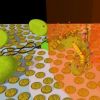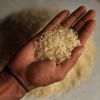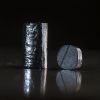-
 +12 +1
+12 +1The world’s most toxic town: the terrible legacy of Zambia’s lead mines
Almost a century of lead mining and smelting has poisoned generations of children in the Copperbelt town of Kabwe in Zambia. By Damian Carrington.
-
 +26 +1
+26 +1The Poisoned Generation
The story of a decades-long lead-poisoning lawsuit in New Orleans illustrates how the toxin destroys black families and communities alike. By Vann R. Newkirk II.
-
 +22 +1
+22 +1New technique for rapidly killing bacteria using tiny gold disks and light
Light-activated gold nanoparticles destroy potentially deadly bacterial cells in seconds. The method could one day help hospitals treat some common infections without using antibiotics, which could help reduce the risk of spreading antibiotics resistance. (Mar. 17)
-
 +42 +1
+42 +1Beyond Flint: Excessive lead levels found in almost 2,000 water systems across all 50 states
Tests in cities, rural subdivisions and even schools and day cares serving water to 6 million people have found excessive and harmful levels of lead, with several hundred failing EPA-required tests repeatedly. By Alison Young and Mark Nichols.
-
 +17 +1
+17 +1How Ancient Microbes Gave Us Iron
Looking back through the eons at a revolution that shaped Earth’s history. By Marcia Bjornerud.
-
 +25 +1
+25 +1Is it safer to cook rice in a coffee percolator to avoid arsenic?
It cuts the risk of arsenic poisoning, researchers say. Why, asks Jon Kelly.
-
 +19 +1
+19 +1After 85-year search, massless particle with promise for next-generation electronics found
An international team led by Princeton University scientists has discovered Weyl fermions, an elusive massless particle theorized 85 years ago. The particle could give rise to faster and more efficient electronics because of its unusual ability to behave as matter and antimatter inside a crystal, according to new research.
-
 +10 +1
+10 +1Paradoxical Crystal Baffles Physicists
When cooled to super-low temperatures, a crystal called samarium hexaboride behaves in an unexplained, imagination-stretching way.
Submit a link
Start a discussion




















